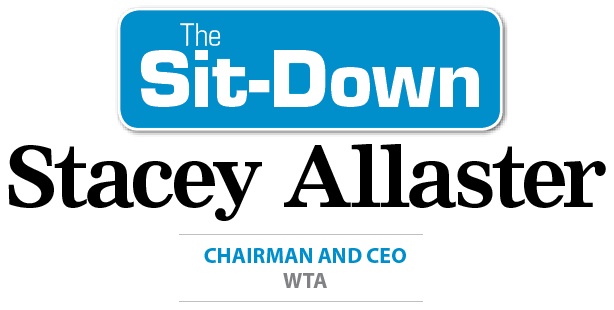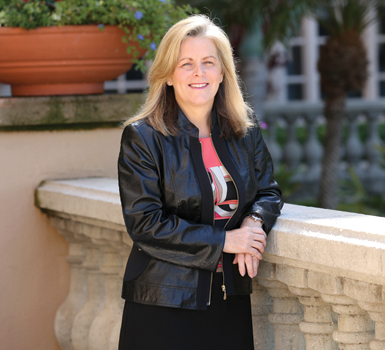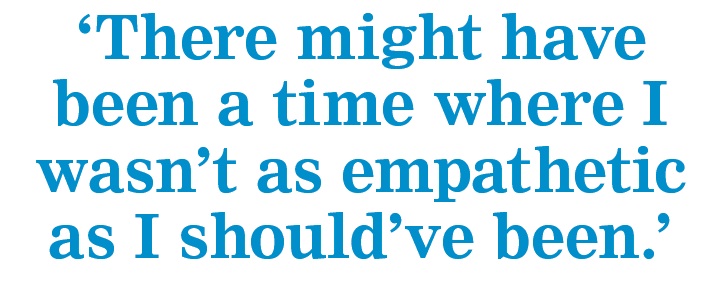People and Pop Culture
Stacey Allaster, chairman and CEO, WTA
As Wimbledon begins its fortnight, the head of the women’s tennis tour discusses staying connected, the importance of the first two minutes of an interview, and why everybody needs to spend time selling.

I would characterize myself as someone who is very disciplined, hardworking and wants to achieve results. What I did yesterday is now really irrelevant. What’s going to matter is what myself and the team do tomorrow and next year — down the road.
I wouldn’t characterize myself as being a very good leader in my late 20s and early 30s. I have taken onboard the feedback and my own self-learning. I have a CEO coach who’s worked with many Fortune 500 CEOs. He gives me good guidance.
 |
Photo by: GORT PRODUCTIONS
|
Management and leadership are two separate things.
There might have been a time where I wasn’t as empathetic as I should’ve been and very much like, “We’ve got to get this deal done and everybody get out of the way if you’re not going to do it.” That’s not, obviously, very effective when you’re trying to inspire and build consensus and garner support.
I always thought I was a very caring person, who cared a tremendous amount about my team, but it wasn’t actually what the team felt. So I’ve adapted. I’ve got to be mindful of that and continue to nurture.
Everybody wants to be appreciated. If you look at extrinsic motivation, you can give them the raises and the benefits, but it doesn’t last. What your team really wants are the intrinsic factors. They want responsibility, they want authority, and they want appreciation when they do a great job.
I have a senior management team all on the same bonus so we’re all aligned. It’s aligned in the same bonus plan that I have so that we’re one team. My goals cascade down to their goals.
I’ll be the first one to accept responsibility if we haven’t achieved something because I didn’t set staff up for it or the expectations were not clear. But if I can honestly answer all those questions, then I go to, “Is this the right person for our organization?”
Cultural fit is mission critical to our success. This person has got to fit with our team. We’re small, agile, and we need passionate people, people who want to have some fun and respect each other. Those cultural elements in the DNA of who the people are are what I look for very much when I’m hiring.
I know if a person will be a cultural fit in the first two to three minutes of meeting them.
I look for how they introduce themselves, if they look you in the eye. Just their whole physical communication and it’s how genuine they are. You can feel it. You can feel confidence with humility or you can feel confidence with arrogance, and there’s a significant difference.
Someone who was a mentor for me was Tennis Canada COO Derek Strang. He would give me feedback and he knew the pressure I was under in generating revenue and building the stadium, so he understood the context and helped me to take a moment, take a breath, and look at a different way to give that feedback and move this group forward.
Sometimes we promote people because of their success, not because they can be good leaders. We don’t give them the tools to be leaders, to be managers. That’s certainly an area that I’m working on with our group because they are young, they are ambitious, they have achieved success.
We’re global and we’re not in the same office together and we’re a traveling circus. We’re on the road all the time, so how do you get that touch and feel and keep them all inspired?
I have to stay connected. I have a small staff, around 85. I don’t want them to ever feel that “Stacey’s not accessible to me.”
If I’m in a market, I will try to have dinner with the team that’s there. From our Beijing office, from our London office; [I] even took the St. Pete office out because I’m there so little that they might not get interaction with me.
I spend an incredible amount of time on the road in small meetings. We used to do one to two meetings a year, 150 players; not an effective way to communicate. Now it’s 20.
The best advice I was ever given was by former IMG Canada President Elliott Kerr. He said, “Stacey, you want to differentiate yourself in this business. You have to make the organization money, you have to get sales experience.”
I was not a natural salesperson, but I’ll put myself out there, and I got the sales training I needed and that has been the key to my success. You have to either make the organization money, save the organization money, or make your organization look great.
Everybody in this business needs to spend time selling, because that’s your connection with the fan and you’ll know how hard it is to close one ticket deal. You’ll know how hard it is to get a season-ticket holder to be satisfied and to renew.
It’s not an organization’s responsibility to develop your career. Your career is your responsibility, and I’m here today because I put the effort in, the learning in. I was fortunate to have good people around me.
The irony is, getting on an airplane is actually an escape for me. I decompress, I don’t talk to anyone. Sometimes I feel bad about it, but it’s my time.
I love to go to the beach. The beach is the place that really allows me to relax. I even like to hit some golf balls.
I really like autobiographies. I just finished Walter Isaacson’s book on Steve Jobs. Before that, I read Nelson Mandela’s “Walk to Freedom,” which is an incredible book.






